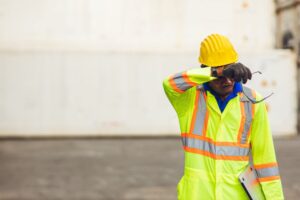The Occupational Safety and Health Administration (OSHA) cited Belle Glade, Florida, farm labor contractor McNeill Labor Management Inc. in the heatstroke death of a migrant sugar cane farmworker, the agency announced April 15. Because there’s no federal standard for heat exposures or heat illness prevention and the agency cites employers under the General Duty Clause (§5(a)(1)) of the Occupational Safety and Health Act, proposed penalties are just $27,655.
The 26-year-old worker, hired by the farm labor contractor under the federal H-2A program for temporary or seasonal nonimmigrant workers, traveled from Mexico to South Florida for a job on a sugar cane farm near Loxahatchee, Florida. The worker suffered fatal heat-related injuries while working in an open field as the heat index reached 97 degrees.
OSHA investigators determined that the contractor could have prevented the worker’s death by implementing work safety rules to protect workers from heat-related hazards, including an effective plan to help workers acclimate to weather conditions.
Investigators learned that the worker, sitting atop stacks of sugar cane on a trailer as he tossed them to the ground for planting, began experiencing symptoms consistent with heat-related illness and complained of not feeling well. He soon collapsed.
The field where he worked is about an hour west of West Palm Beach, 20 minutes from the closest road, and 22 miles from the hospital where he was transported and where he later died from heatstroke.
OSHA cited McNeill Labor with one serious violation of the General Duty Clause for exposing workers to hazards associated with high ambient heat while working in direct sunlight. Federal investigators also found that the employer didn’t report the worker’s hospitalization or eventual death.
“This young man’s life ended on his first day on the job because his employer did not fulfill its duty to protect employees from heat exposure, a known and increasingly dangerous hazard,” Condell Eastmond, OSHA’s Fort Lauderdale, Florida, area office director, said in a statement. “Had McNeill Labor Management made sure its workers were given time to acclimate to working in brutally high temperatures with required rest breaks, the worker might not have suffered a fatal injury.”
In 2021, OSHA issued an advance notice of proposed rulemaking for heat injury and illness prevention in outdoor and indoor work settings, asking stakeholders for input on 114 questions about a possible standard. The agency completed a Small Business Regulatory Enforcement Fairness Act (SBREFA) review of the rulemaking last year and is analyzing the findings.
Kansas roofer facing $233K OSHA fine for fall hazards
Triple A Built LLC, a Wellsville, Kansas, roofing contractor, faces $233,210 in OSHA penalties for exposing workers to fall hazards at Missouri worksites, the agency announced April 12. OSHA compliance safety and health officers (CSHOs) observed employees of Triple A Built in Peculiar and Blue Springs, Missouri, doing framing work without required fall and eye protection.
OSHA initiated inspections under its National Emphasis Program (NEP) for falls and regional emphasis program (REP) on falls, scaffolds, and electrocutions from overhead power lines in construction. OSHA’s fall protection NEP authorizes CSHOs to make “self-referrals” if they observe fall hazards during their normal travels.
The agency cited the employer with six instance-by-instance repeat violations for a lack of fall protection and two repeat violations for not providing workers using powered nail guns with eye and face protection. The agency cited Triple A Built for similar violations in 2021.
Falls from heights are one of the construction industry’s “fatal four” occupational safety hazards, along with caught-in/-between, electrocution, and struck-by hazards. Last fall, OSHA announced that the agency’s construction industry fall protection standard has remained its most cited standard for 13 years. The construction eye and face protection standard was the ninth most cited standard in fiscal year (FY) 2023. “OSHA repeatedly finds residential construction contractors like Triple A Built ignoring federal regulations designed to protect workers from debilitating or deadly fall hazards,” Gladys Keino, OSHA’s acting Kansas City, Missouri, area office director, said in a statement.

